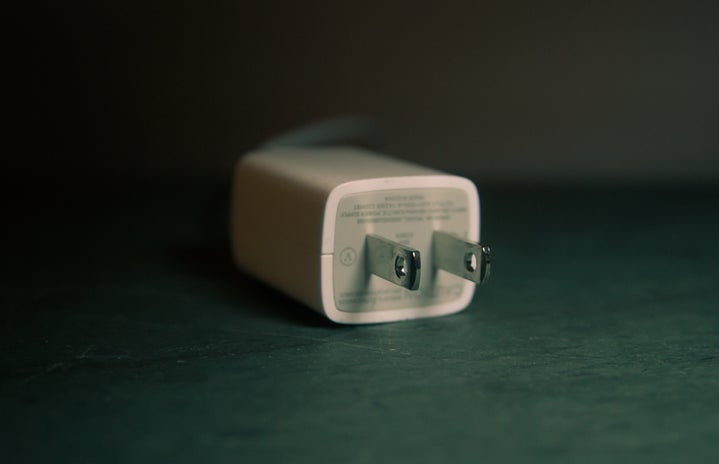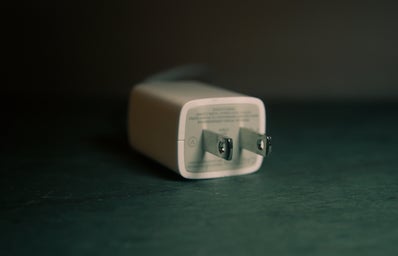Precursor: This article represents a generalization of the different generation’s relationship with technology. I recognize that not everyone fits into these molds. This is simply a reflection of my experience.
The other day I strolled into my professor’s office expecting to be greeted with pleasant conversation. Instead, when I genuinely asked how they were doing they gave me a distracted “fine” and proceeded to scroll on their phone.
When I tried to ask them a question about an upcoming event they brushed me off and rattled off the latest news that was on their Twitter feed. Leaving the meeting, I was annoyed with the lack of professionalism, feeling like my time was not valued.
I wondered why this vexed me in our digital age and I realized it is because the person I was interacting with was an older adult.
Throughout my life, I have found it easier to connect with older adults. I love nothing more than striking up a conversation with the older woman on an airplane who spent her career as a nurse and is travelling to spend time with her 7 grandchildren. I value her wisdom and advice.
When I notice older adults choosing social media over genuine connections, I experience cognitive dissonance. Maybe it is the hypocrisy of it all. Our whole lives we have had teachers, parents and relatives telling us to get off our phones as they post their every move on Facebook.
Their generation grew up without advanced technology. The dichotomy between our social culture and theirs is palpable. My mom talks to me about how close-knit her community was growing up.
They had the utmost respect for their friends parents and their teachers. Now, parents get mad at teachers for their child’s poor and inexcusable behavior. They spent time hanging out with kids from the neighborhood. Kids now spend a lot of time playing games online.
I recently watched the 2020 documentary, The Social Dilemma, in which former employees of big tech companies expose the industry’s tactics of keeping people hooked on their products for financial gain. The detrimental effects of this include the compromise of democracy, social connections built on deception and increased mental health issues.
Subconsciously I excuse my generation for scrolling at the awkward family event or texting in class. We are conditioned to reach for our phones when any uncomfortable emotion arises. If you do not know anyone at a party, scroll on social media. If you do not want to think about an ex, numb yourself with Netflix. If no one is talking while out to dinner, pretend to check your email.
We have been handed this easy out. The documentary described our phones as a “digital pacifier”. This has prevented us from being mindful of the thoughts and emotions we are experiencing. We are skipping the problem-solving step and going straight to the instant solution. Over time, this compounds and creates a myriad of social and emotional issues.
I notice that my generation is realizing these negative effects. For my social psychology of addiction class, we were tasked to give up something we were attached to for 40 days to simulate addiction. A lot of people gave up social media.
The professor asked us how we felt about giving our future children technology and a majority of people responded that they do not want to expose their children to smartphones as early as children are now. I believe we are the generation of change and we recognize the negative effects that technology has had on our lives.
If we see these negative effects why are we still so attached to our phones?
Well… it is psychological. Social media provides us with dopamine (a feel-good neurotransmitter) which is similar to the rush that gamblers and heroin addicts get.
There is a phenomenon called the casino effect that these platforms use to keep us hooked. The casino effect states that the gambler cares less about the reward and more about the anticipatory factor of gambling. The same thing happens when you scroll for hours on TikTok.
Your brain is excited because it does not know what video will pop up next so you end up doomscrolling for hours on end, neglecting responsibility, relationships, and fulfilling activities.
The creators of Facebook, Twitter, TikTok, Instagram, YouTube, etc. designed these platforms to keep users hooked. One quote from the social dilemma stated “If you are not paying for the product, you are the product”. They know how to manipulate you. They have taken what it means to be human – connecting with others- and have exploited it to capitalize.
We fall into the trap every. single. time.
No matter what generation you are a part of, technology has infringed upon our lives.
I think we all have a personal responsibility to protect the human connection that is being materialized and sold by young white men from Silicon Valley.
We owe it to ourselves and others to create meaningful relationships that are based on more than instant gratification and convenience.
I will teach my children that it is important to see others for who they really are and not just who they present themselves to be.


